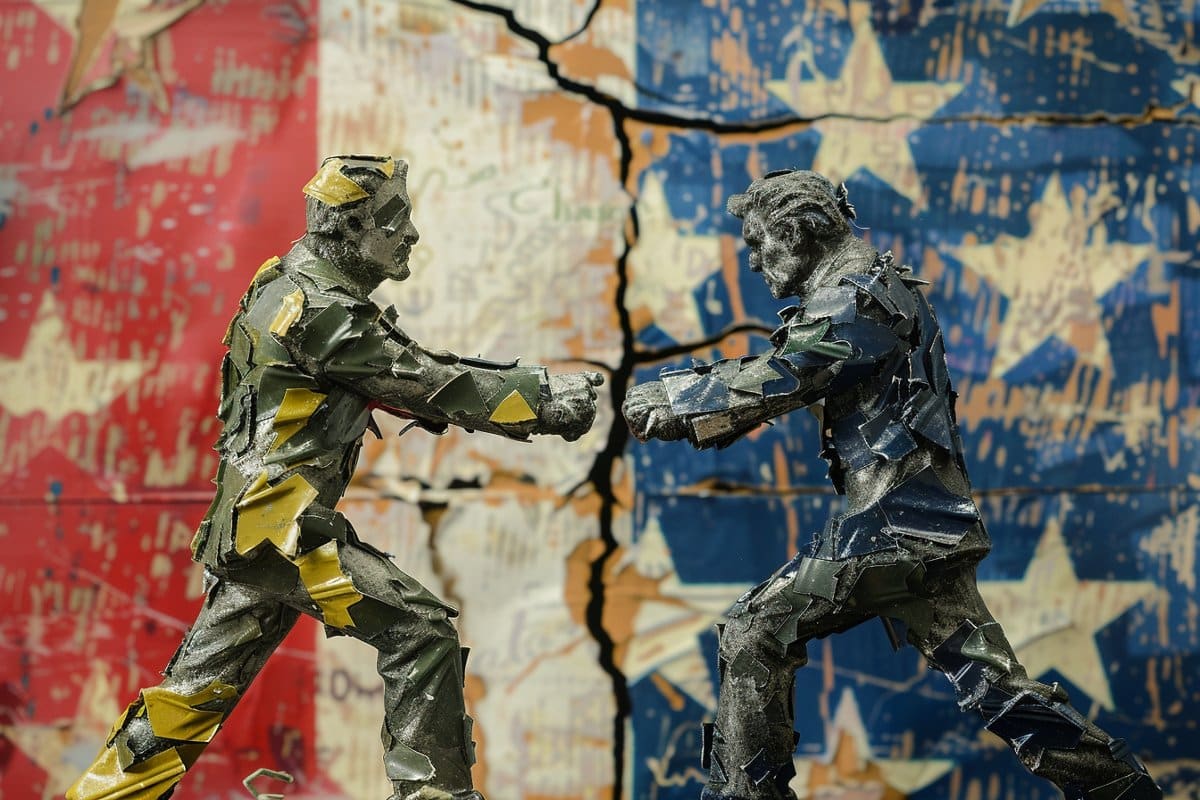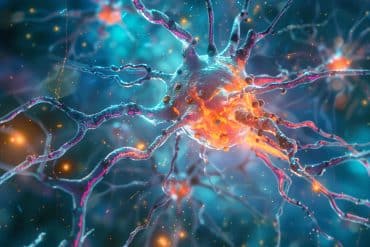Summary: In today’s polarized political climate, a recent study uncovers a stark divide in moral judgment based on political affiliation, revealing a complex interplay between personal beliefs and political loyalty.
Researchers found that individuals are more lenient towards the misdeeds of political allies while adopting a punitive stance towards opponents, a phenomenon that challenges the notion of universal moral standards. This discrepancy is attributed to the evolutionary need for group success, which allows moral boundaries to flex in the face of political competition.
The study, based on four independent samples, also highlights that ingrained antipathy towards political outgroups exacerbates this divide, suggesting that deeply rooted political biases significantly influence moral judgment and ethical behavior.
Key Facts:
- Individuals demonstrate a tendency to excuse the transgressions of political allies while harshly judging those of opponents, suggesting a flexible application of moral standards in political contexts.
- The study proposes that this moral flexibility serves an evolutionary purpose, allowing groups to prioritize success over strict adherence to universal moral codes.
- Deep-seated dislike for political outgroups was identified as a key factor driving the willingness to deviate from personal moral values in political situations.
Source: Neuroscience News
In the fervent arena of politics, where the clash of ideologies often reaches fever pitch, a groundbreaking study sheds light on the intricate dance between moral judgment and political affiliation.
At the heart of this exploration lies a provocative question: Why do similar transgressions elicit starkly different reactions based on political loyalty?
The Fluidity of Moral Judgment in Political Contexts
The study, conducted across four independent samples, reveals a fascinating phenomenon: individuals exhibit a marked tendency to be more forgiving of the transgressions committed by those within their political camp, while simultaneously adopting a punitive stance towards their political adversaries.
This partisan morality, as it has been dubbed, not only challenges the notion of universal moral standards but also uncovers the deep-seated biases that influence ethical behavior in the political realm.
An Evolutionary Perspective on Morality and Politics
The researchers propose an evolutionary framework to explain this malleable moral landscape. According to their hypothesis, moral values—often considered as nonnegotiable pillars of right and wrong—may, in fact, serve a more adaptive purpose.
The study suggests that moral boundaries are inherently flexible, shaped by the evolutionary need to ensure the success of one’s ingroup. In the competitive environment of politics, where the stakes of ingroup versus outgroup rivalry are high, this flexibility allows for a loosening of moral constraints to serve the interests of the ingroup.
The Role of Ingroup Antipathy
A critical finding of the study is the role of ingroup antipathy—internalized dislike of the outgroup—in driving the partisan morality divide. Individuals with a strong aversion to their political outgroups were found to be more willing to deviate from their personal moral values in political situations.
This insight provides a compelling explanation for the often observed moral hypocrisy in politics, where loyalty to one’s political group can override core ethical principles.
Implications for Political Polarization
The implications of these findings are profound, particularly in the context of increasing political polarization. The study highlights how deeply ingrained political biases can influence moral judgment, potentially exacerbating divisions and eroding bipartisan norms.
As politics becomes more about winning at all costs, the study raises important questions about the impact of partisan morality on democratic processes and the fabric of society.
A Closer Look at the Study
The study’s methodology involved a systematic examination of moral behavior and tolerance, both in personal and political contexts, across four independent samples.
The researchers employed a range of measures, including moral foundations theory and the Motivation to Express Prejudice Scale, to investigate the relationship between moral judgment and political affiliation.
Their analysis revealed consistent support for the hypothesis that people are more likely to engage in and tolerate immoral behavior in the political realm compared to the personal realm.
Moral Judgment: Trait-Like or Context-Dependent?
The fluidity of moral judgment observed in the study challenges traditional conceptions of morality as a stable, trait-like attribute. Instead, the findings suggest that moral judgment and behavior are highly context-dependent, influenced by the salient features of the decision-making environment. This raises intriguing questions about the nature of moral values and their application across different spheres of life.
The Adaptive Function of Morality
At its core, the study posits that morality evolved as a solution to the challenges of social living, requiring a balance between individual self-interest and group cooperation. The selective application of moral values in group-competitive environments, such as politics, can be understood as an adaptive response to these challenges.
This perspective offers a fresh lens through which to view the complexities of moral judgment in the modern political landscape.
A Call for Further Research
While the study provides compelling evidence for the existence of partisan morality, it also underscores the need for further research to explore the nuances of this phenomenon.
Future studies could delve deeper into the individual and group-level variations in moral judgment, as well as the potential for interventions to mitigate the impact of political biases on ethical behavior.
Navigating the Partisan Morality Divide
As society grapples with the implications of the partisan morality divide, the study serves as a timely reminder of the power of political biases to shape our perceptions of right and wrong. In an era of heightened polarization, understanding the interplay between moral judgment and political affiliation is more critical than ever.
By shedding light on the adaptive roots of morality and the role of ingroup antipathy, this research offers valuable insights into the challenges and opportunities for fostering a more inclusive and ethically grounded political discourse.
About this politics and psychology research news
Author: Neuroscience News Communications
Source: Neuroscience News
Contact: Neuroscience News Communications – Neuroscience News
Image: The image is credited to Neuroscience News
Original Research: Open access.
“Politics makes bastards of us all: Why moral judgment is politically situational” by Kyle Hull et al. Political Psychology
Abstract
Politics makes bastards of us all: Why moral judgment is politically situational
Moral judgment is politically situational—people are more forgiving of transgressive copartisans and more likely to behave punitively and unethically toward political opponents. Such differences are widely observed, but not fully explained.
If moral values are nonnegotiable first-principle beliefs about right and wrong, why do similar transgressions elicit different moral judgment in the personal and political realm?
We argue this pattern arises from the same forces intuitionist frameworks of moral psychology use to explain the origins of morality: the adaptive need to suppress individual behavior to ensure ingroup success.
We hypothesize ingroups serve as moral boundaries, that the relative tight constraints morality exerts over ingroup relations loosen in competitive group environments because doing so also serves ingroup interests.
We find support for this hypothesis in four independent samples and also find that group antipathy—internalized dislike of the outgroup—pushes personal and political moral boundaries farther apart.







